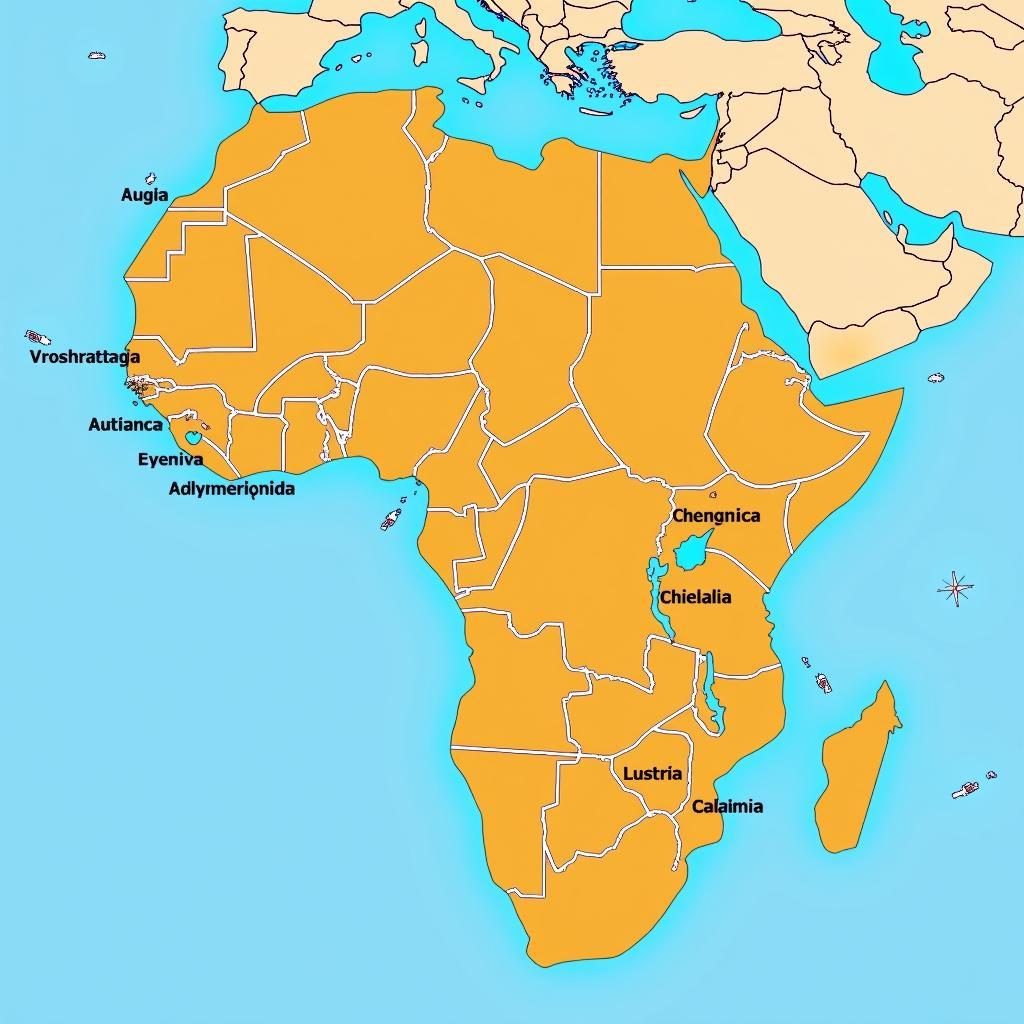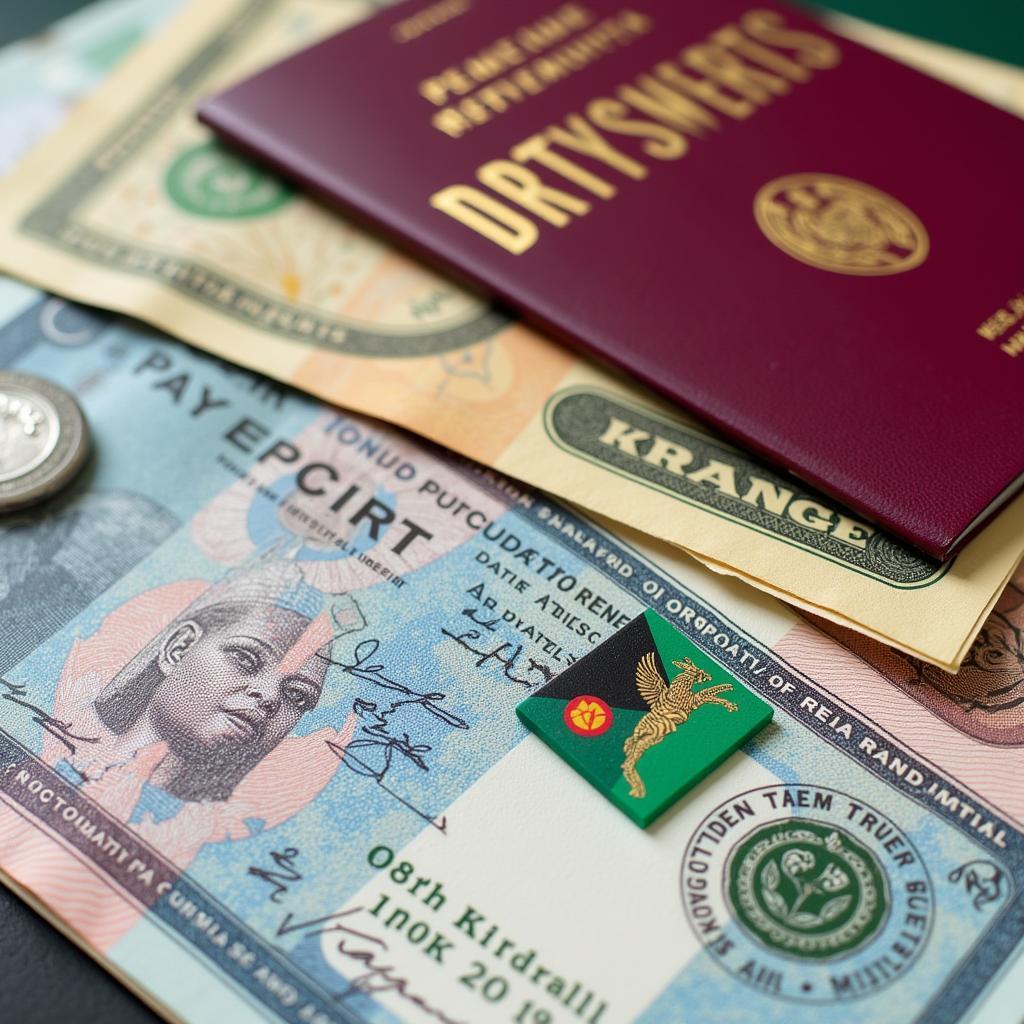African Country Name Change: A History of Identity and Reclaimation
African Country Name Changes are more than just a simple alteration of words on a map. They represent profound shifts in identity, the reclaiming of history, and the assertion of self-determination. These changes often reflect a desire to break free from colonial pasts, embrace indigenous languages and cultures, or signify a new political era.  Map showing African countries that have changed their names
Map showing African countries that have changed their names
Why Do African Countries Change Their Names?
Several factors motivate African countries to change their names. The most prominent reason is the legacy of colonialism. Many countries inherited names imposed by European powers that often had little connection to the local history or culture. Changing their names allows these nations to shed colonial baggage and embrace a more authentic identity. For example, Rhodesia, named after Cecil Rhodes, a symbol of British colonialism, became Zimbabwe, referencing the Great Zimbabwe ruins, a testament to the country’s pre-colonial history. Similarly, Upper Volta, a French colonial designation, transformed into Burkina Faso, meaning “Land of the Upright People” in local languages. This name reflects the nation’s cultural values and pride.
Beyond Colonialism: Other Reasons for Name Changes
While decolonization is a major driver, other factors also contribute to name changes. Political transitions can lead to renaming a country to signify a new beginning or ideology. For example, after the fall of Mobutu Sese Seko’s regime, Zaire reverted to its pre-colonial name, the Democratic Republic of Congo. This change symbolized a break from the past and a return to democratic principles. Sometimes, name changes can also be motivated by a desire to unify a nation, clarify geographical boundaries, or simply reflect evolving national identities.
The Process of Changing a Country’s Name
Changing a country’s name is a complex process, involving constitutional amendments, legislative approvals, and often, public referendums. It also requires international recognition and updating of various global databases and records. This process can be lengthy and challenging, reflecting the significance of such a decision. It’s a testament to a country’s commitment to reshaping its identity on the world stage.
What Happens After an African Country Changes Its Name?
Following a name change, a country undergoes various adjustments. Maps, textbooks, and official documents are updated. Embassies, consulates, and international organizations are notified. The country’s new name is gradually adopted in international forums and media. This transition period can sometimes lead to confusion and inconsistencies, but it eventually solidifies the country’s new identity globally.
 Official documents with a country's new name
Official documents with a country's new name
The Significance of African Country Name Changes
African country name changes represent a powerful act of self-definition. They allow nations to reclaim their history, celebrate their culture, and project their chosen identity to the world. These changes are a vital part of the ongoing journey of self-discovery and assertion of sovereignty that continues to shape the African continent. For example, Swaziland changing its name to Eswatini reclaimed its pre-colonial identity. This shift resonated deeply within the country and internationally.
Have you ever wondered about the 3 smallest african countries? Their sizes might be small, but their histories and cultures are rich and complex.
Are you interested in knowing the african countries and capitals and currency in hindi? This resource provides valuable information for anyone seeking to learn more about the diverse nations of Africa.
The story of Zaire, now the african country zaire, offers a compelling example of how name changes reflect political and social transformations on the continent.
What are the african footballer of the year odds? This is a fascinating look at the talented athletes who represent the continent on the global stage.
The african cheetah endangered situation highlights the importance of conservation efforts in preserving the continent’s unique wildlife.
Conclusion
African country name changes are a powerful symbol of reclaiming identity and shaping the future. These changes go beyond mere nomenclature, reflecting profound shifts in national consciousness and the ongoing evolution of the African continent. Understanding the historical context and motivations behind these name changes is crucial for appreciating the rich tapestry of cultures and histories that make up modern Africa.
FAQ
- Why is it important for African countries to change their colonial names?
- What are some examples of African countries that have changed their names?
- What is the process involved in changing a country’s name?
- How do name changes impact a country’s international relations?
- What are the cultural and social implications of changing a country’s name?
- Are there any controversies surrounding African country name changes?
- How do name changes contribute to the formation of national identity?
For further information on related topics, you might be interested in exploring articles about African history, decolonization, and cultural identity.
If you need assistance, please contact us: Phone: +255768904061, Email: [email protected], or visit us at Mbarali DC Mawindi, Kangaga, Tanzania. We have a 24/7 customer service team.

